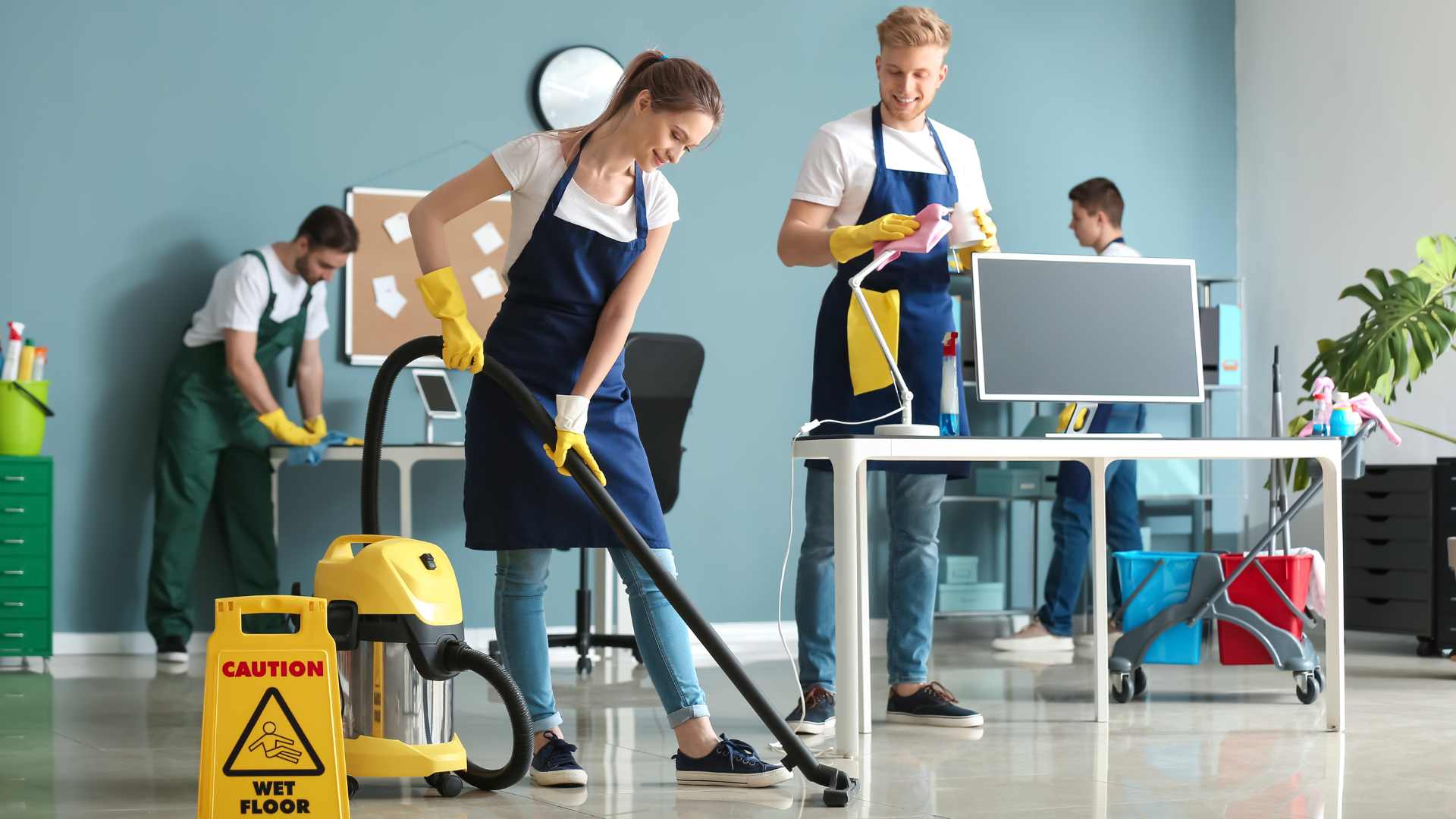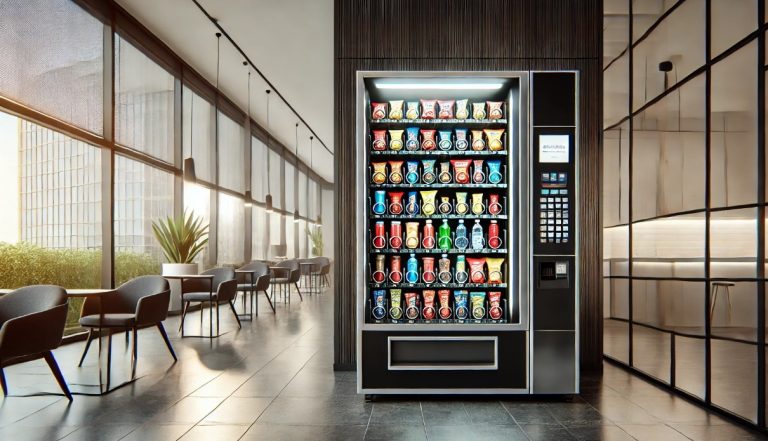How to Start a Cleaning Business in the UK?: A Step-by-Step Guide
Are you thinking about starting a cleaning business in the UK but unsure where to begin? The demand for cleaning services is rising as both households and businesses seek reliable professionals to maintain cleanliness and hygiene. But what steps do you need to take to turn this demand into a profitable business?
How much investment is required? Do you need insurance or special licences? Should you work alone or hire staff? These are important considerations when launching a cleaning business.
This guide will walk you through every essential step from understanding legal requirements and setting pricing to finding clients and expanding your services.
Whether you want to start small or grow into a larger operation, this structured approach will help you build a successful and sustainable cleaning business in the UK.
Why Start a Cleaning Business in the UK?

The UK cleaning industry is thriving, with over 66,000 cleaning businesses and an annual market value exceeding £59 billion. With increasing demand for domestic and commercial cleaning services, starting a cleaning business presents a profitable opportunity.
The industry offers low startup costs, making it accessible to entrepreneurs without significant capital investment and one of the biggest advantages is flexibility. You can operate as a sole trader, work part-time, or scale up by hiring staff.
Many businesses start with domestic cleaning before expanding into specialised services like deep cleaning, carpet cleaning, or commercial contracts. The sector is also resilient, as cleaning services remain essential regardless of economic fluctuations.
With the right business model and marketing strategy, a cleaning business can provide stable income, recurring clients, and long-term growth potential. It’s an ideal option for those looking to enter self-employment.
Is Starting a Cleaning Business in the UK Profitable?
The UK cleaning industry is highly profitable, with the sector employing over 1.47 million people and generating £59 billion annually. The demand for cleaning services continues to grow, especially in domestic, commercial, and specialised sectors.
Key Factors Driving Profitability:
- Steady Demand: Businesses, landlords, and homeowners require regular cleaning services.
- Recurring Revenue: Many clients book weekly, bi-weekly, or monthly services, ensuring stable income.
- Scalability: You can start as a sole trader and expand into larger contracts or franchise models.
Self-employed cleaners in the UK earn an average of £12-£25 per hour, while larger cleaning businesses generate annual revenues exceeding £100,000.
Specialised services, such as deep cleaning and eco-friendly solutions, can command higher rates. With low startup costs and high market demand, a cleaning business offers excellent profit potential.
What Are the Legal Requirements for a Cleaning Business in the UK?

Starting a cleaning business in the UK requires compliance with legal and regulatory requirements. Whether operating as a sole trader or a limited company, ensuring proper registration and adhering to business laws is essential to avoid fines or legal issues.
Key Legal Requirements:
- Business Registration: You must register as a sole trader with HMRC for tax purposes or set up a limited company with Companies House. Sole traders have simpler tax processes, while limited companies offer liability protection.
- Insurance: Public liability insurance is crucial to cover potential damage to clients’ property. Employers’ liability insurance is legally required if hiring staff.
- Health & Safety Compliance: Following UK Health and Safety Executive (HSE) guidelines is essential, including COSHH (Control of Substances Hazardous to Health) regulations for cleaning chemicals.
- Licences & Permits: Most cleaning businesses do not require special licences, but handling hazardous waste or industrial cleaning may need additional permissions.
Failing to meet these legal requirements can result in penalties or business restrictions. Proper documentation ensures a smooth and legally compliant operation.
How Much Does It Cost to Start a Cleaning Business?
The cost of starting a cleaning business in the UK varies based on the type of services offered, business structure, and initial investments in equipment and marketing.
While a solo domestic cleaning business can start with as little as £500-£1,000, a commercial cleaning business may require £5,000 or more due to specialised equipment and higher insurance costs.
Estimated Startup Costs:
| Expense Category | Estimated Cost (£) | Notes |
| Business Registration | 12 – 50 | Sole trader (free), Limited company (£12-£50) |
| Insurance (Public Liability) | 100 – 500 | Cost varies by coverage level |
| Cleaning Supplies & Equipment | 200 – 1,500 | Varies based on domestic or commercial cleaning |
| Marketing (Website, Ads) | 100 – 1,000 | Includes website setup, flyers, and online ads |
| Transport (If Needed) | 1,000+ | Optional if covering larger areas |
Ongoing Costs:
- Fuel & Transport: If travelling to multiple locations.
- Replacement of Supplies & Equipment: Regular restocking.
- Staff Wages (If Hiring): Cleaning staff typically earn £10-£15 per hour.
Keeping initial costs low by purchasing essential supplies and gradually expanding can help maintain profitability. Business owners should also consider government grants or small business loans to support startup expenses.
What Type of Cleaning Services Should You Offer?

Choosing the right cleaning services for your business is crucial for profitability and market demand. In the UK, cleaning businesses generally fall into domestic cleaning and commercial cleaning, each with different customer bases and operational requirements.
1. Domestic Cleaning
Domestic cleaning involves working in private homes, offering services like regular house cleaning, deep cleaning, and end-of-tenancy cleaning.
It requires minimal startup costs and allows for flexible working hours. Clients typically prefer individual cleaners or small teams due to affordability and trust.
2. Commercial Cleaning
Commercial cleaning involves servicing businesses, offices, schools, and retail spaces. It often requires specialist equipment and may involve larger contracts, leading to higher but more stable income.
However, competition is higher, and contracts may require insurance, compliance with health regulations, and a more structured workforce.
3. Specialised Cleaning Services
Some businesses focus on niche markets, such as:
- Carpet & Upholstery Cleaning: High demand in residential and office settings.
- Window Cleaning: Suitable for both homes and high-rise office buildings.
- Eco-Friendly Cleaning: Uses non-toxic products, appealing to environmentally conscious clients.
- Deep Cleaning & End-of-Tenancy Cleaning: Lucrative in rental markets and real estate.
Selecting the right services depends on market demand, competition, and budget. A combination of general and specialised services can help differentiate your business and attract a broader client base.
What Equipment and Supplies Do You Need?
Having the right equipment and cleaning supplies is essential for efficiency, professionalism, and customer satisfaction. Your choice of products depends on whether you focus on domestic, commercial, or specialised cleaning services.
What Are the Essential Cleaning Equipment?
| Equipment | Purpose | Estimated Cost (£) |
| Vacuum Cleaner | Carpet and floor cleaning | 50 – 300 |
| Mop & Bucket | Floor cleaning | 10 – 50 |
| Microfibre Cloths | General surface cleaning | 10 – 30 |
| Cleaning Chemicals | Disinfectants, degreasers, etc. | 20 – 100 |
| Protective Gear | Gloves, masks, aprons | 10 – 50 |
| Carpet Cleaner | Deep carpet cleaning | 100 – 500 |
| Pressure Washer | Outdoor and industrial cleaning | 200 – 1,500 |
Where to Source Equipment?
- Local suppliers or wholesalers for bulk discounts.
- Online marketplaces like Amazon, eBay, or cleaning supply stores.
- Lease or rent high-cost equipment (e.g., carpet cleaners, pressure washers) to reduce upfront expenses.
Investing in quality equipment reduces long-term costs and ensures a professional service standard, which is key to building trust and retaining clients.
Do You Need Insurance for a Cleaning Business?

Insurance is crucial for a cleaning business in the UK as it protects against potential risks like property damage, accidents, and legal claims.
While not all insurance types are legally required, some are essential for operating professionally and securing contracts.
What Types of Insurance Do Cleaning Businesses Need?
| Insurance Type | Purpose | Legal Requirement? | Estimated Cost (£/Year) |
| Public Liability Insurance | Covers damages to clients’ property | Highly recommended | 100 – 500 |
| Employers’ Liability Insurance | Required if hiring staff | Legally required | 250 – 2,500 |
| Business Equipment Insurance | Covers loss/damage of cleaning equipment | Optional | 100 – 500 |
| Professional Indemnity Insurance | Protects against legal claims for poor service | Optional | 100 – 1,000 |
Why Is Insurance Important?
- Protects Against Accidental Damage: If you damage a client’s property, public liability insurance covers repair costs.
- Legal Compliance: If you have employees, employers’ liability insurance is mandatory.
- Secures Larger Contracts: Many commercial clients require proof of insurance before hiring a cleaning service.
Skipping insurance can lead to financial losses if an accident or claim arises. Investing in the right coverage ensures peace of mind, credibility, and long-term business security.
How Can You Find Clients for Your Cleaning Business?
Finding clients is one of the biggest challenges for new cleaning businesses. To build a steady client base, you need a combination of online and offline marketing strategies.
What Are the Most Effective Ways to Attract Clients?
- Word-of-Mouth & Referrals: Satisfied clients are the best promoters. Encourage referrals by offering discounts for recommendations.
- Local Advertising: Distribute flyers, post in local Facebook groups, and list your services on platforms like Gumtree.
- Online Presence: A professional website and social media pages (Facebook, Instagram, LinkedIn) build credibility and attract online searches.
- Business Directories: Register on Checkatrade, Bark, and Yell to gain visibility.
- Google My Business: Optimise for local searches by setting up a Google profile with reviews.
- Networking: Partner with estate agents, landlords, and office managers who regularly need cleaning services.
Consistency in marketing is key to attracting and retaining clients. A mix of online visibility and local networking will help grow your business.
Should You Hire Employees or Work Alone?

Choosing between working alone or hiring employees depends on your business goals, workload, and financial capacity.
1. Working Alone (Sole Trader)
- Pros: Low overhead costs, full control over quality, and flexible working hours.
- Cons: Limited workload capacity, slower business growth, and difficulty covering multiple locations.
- Best for: Small domestic cleaning businesses or those just starting out.
2. Hiring Employees or Contractors
- Pros: Ability to take on larger contracts, increased revenue potential, and business expansion.
- Cons: Higher expenses (wages, insurance, training), legal responsibilities, and quality control challenges.
- Best for: Commercial cleaning businesses, franchise models, or businesses aiming for rapid growth.
If hiring, ensure compliance with employment laws, proper background checks, and training to maintain service quality. Many cleaning businesses start solo and hire as demand increases.
How to Set Prices for Your Cleaning Services?
Setting competitive and profitable pricing is crucial for business success. Cleaning businesses typically charge by the hour, per job, or per square metre, depending on the service type.
What Are the Average Cleaning Rates in the UK?
| Service Type | Price Range (£) | Pricing Model |
| Domestic Cleaning | 12 – 25 per hour | Hourly |
| End-of-Tenancy Cleaning | 100 – 400 per job | Fixed Price |
| Carpet Cleaning | 40 – 80 per room | Per Room |
| Commercial Cleaning | 15 – 30 per hour | Hourly/Contract |
What Factors Affect Pricing?
- Location: Urban areas tend to have higher rates.
- Experience & Reputation: Established businesses can charge more.
- Specialised Services: Deep cleaning, eco-friendly services, or emergency cleaning can be priced at a premium.
- Client Type: Domestic clients pay per session, while businesses prefer long-term contracts.
Offering different pricing packages (e.g., one-time vs. subscription-based services) can attract various customer types.
How to Scale and Grow Your Cleaning Business?

Expanding a cleaning business requires strategic planning, reinvestment, and effective client management. Growth should be gradual and sustainable to ensure quality service.
Key Strategies for Scaling:
- Increase Service Area: Expanding to nearby towns or offering mobile cleaning services can increase customer reach.
- Hire More Staff: A larger team allows for more contracts and faster service delivery.
- Offer Additional Services: Adding carpet cleaning, window washing, or eco-friendly options can attract new clients.
- Invest in Marketing: Paid advertising, SEO for your website, and active social media engagement help gain more visibility.
- Improve Operational Efficiency: Using booking and scheduling software can streamline business operations and reduce admin work.
- Franchising: If successful, turning your business into a franchise can create new income streams.
Growth should be balanced with maintaining quality and customer satisfaction. A well-planned expansion ensures long-term profitability and business stability.
Conclusion
Starting a cleaning business in the UK can be a profitable venture with the right planning and strategy. Understanding legal requirements, investing in essential equipment, and setting competitive pricing are key to success.
Marketing your services effectively and maintaining high service standards will help you build a strong client base and ensure steady income.
Whether you choose to work alone or expand by hiring staff, focusing on customer satisfaction and business efficiency is crucial for long-term growth. With a structured approach and continuous improvement, your cleaning business can thrive in a competitive market.
Now that you have a clear roadmap, the next step is to take action register your business, get the necessary equipment, and start offering services. The cleaning industry is full of opportunities, and with dedication, you can build a successful and sustainable business.
FAQs
How long does it take to start a cleaning business in the UK?
Setting up a cleaning business can take as little as a few days if you register as a sole trader. A limited company setup may take a week, depending on paperwork and approvals.
Do I need qualifications to start a cleaning business?
No formal qualifications are required, but training in health and safety, COSHH regulations, and specialised cleaning techniques can improve service quality and client trust.
Can I start a cleaning business from home?
Yes, many small cleaning businesses operate from home. You will need a reliable phone, a marketing strategy, and essential cleaning supplies to get started.
How do I get my first cleaning clients?
Start with word-of-mouth referrals, advertise in local directories, use social media, and list your business on platforms like Checkatrade and Bark for visibility.
What are the biggest challenges of running a cleaning business?
Finding clients, managing scheduling, maintaining consistent service quality, and handling operational costs are some of the biggest challenges for new businesses.
How do I compete with established cleaning companies?
Offer competitive pricing, specialise in niche cleaning services, build strong customer relationships, and use targeted marketing to attract local clients.
Is a cleaning business a good investment in the UK?
Yes, the industry has consistent demand, low startup costs, and scalability, making it a profitable business option with the right planning and execution.







